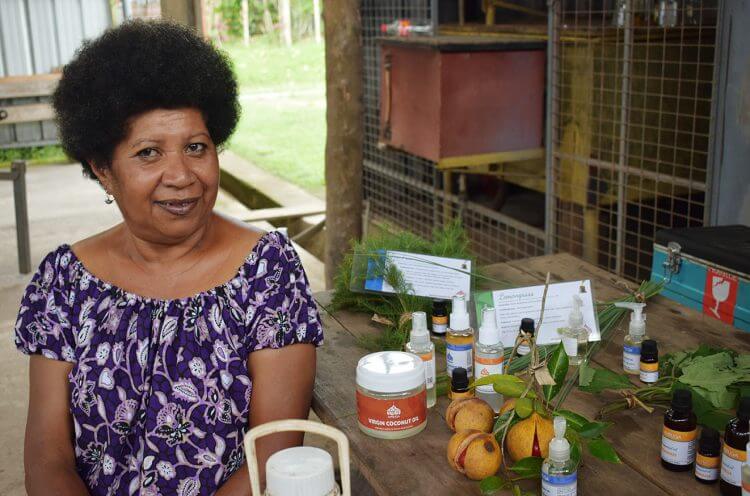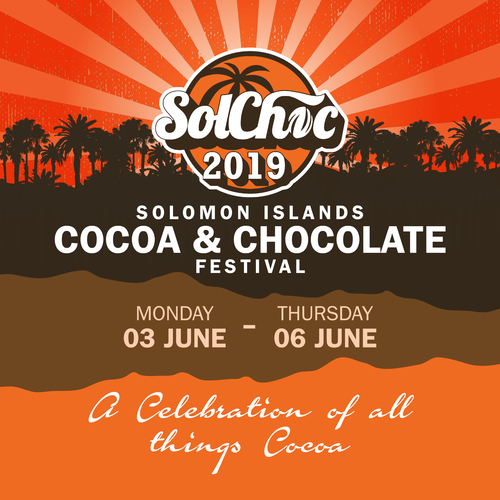IWG a platform of collaboration for high-value coconut product industry stakeholders
High-value coconut products or HVCPs are gaining more popularity over copra production in PNG’s coconut industry.
Although they make up a small proportion of exports in PNG, HVCPs offer a source of regular income for families living in rural areas and small to medium enterprises (SMEs) which produce virgin coconut oil, soaps and other coconut-based cosmetics for local and international markets.
Given the importance of this industry, the Pacific Horticultural and Agricultural Market Access (PHAMA) Program recognised the value in establishing a HVCP Industry Working Group (IWG).

Theresa Arek, chair of the High-Value Coconut Products Industry Working Group in Papua New Guinea. PC: Samantha Rina
HVCP IWG chair Theresa Arek said for the first time in the industry’s history, stakeholders from the public (government) and private sectors came together – as part of the IWG – to a place of discussion and collaboration.
“PHAMA actually helped to make the industry an industry by bringing the relevant people together,” she said. “The IWG has given entities the platform to voice opinion. It has enabled linking with other bodies and through the Kokonas Indastri Koporesen (KIK) has enabled promotion of HVCP to other government statutory bodies.”
Arek said the industry is also more structured now as a result of the IWG which she says has made entities more conscious of methods of processing, packaging and labelling and the value in being certified through systems like the Hazard Analysis Critical Control Points (HACCP) system.
“PHAMA came with an understanding of the Pacific and that made things easier. For example, when the HACCP system was initially introduced to us through the coconut industry, we were given a negative picture in the sense that SMEs were inadequate to achieve accreditation. But PHAMA changed that perception because it understood how things worked in the Pacific and now there is understanding (among SMEs) that certification enables marketability in conjunction with quality of product,” she said.
So far, about five SMEs have gone through the initial stages of the HACCP system with support from PHAMA. “The first lot underwent preparation for the first stages of HACCP and they’re happy and impressed with the assistance and advice they’ve received,” she said.
Arek runs a family-based business, Amruqa, that produces virgin coconut oils, soaps and other essential oils on Vunakanau Estate in Rabaul, East New Britain Province. She said PHAMA had helped SMEs to explore market opportunities by connecting them to potential buyers abroad.
“PHAMA offers market accessibility and has helped to open up new markets. Amruqa exhibited at Cosmoprof Hong Kong in 2017 and that event is a business hub for cosmetics. It was really phenomenal to be there and meet people face to face. We now have markets waiting to buy from us. I would like to thank PHAMA for this initiative and its continued support of SMEs, its influence with KIK and assistance to enable marketability.”
Arek says this type of support provides much-needed market exposure for SMEs.
“The IWG has aligned SMEs so they know what they’re doing and has tried to guide them on what they need to do if they want to export. PHAMA has made programs available and the SMEs now need to be proactive, be innovative and find out how else we can grow the industry,” she said.

